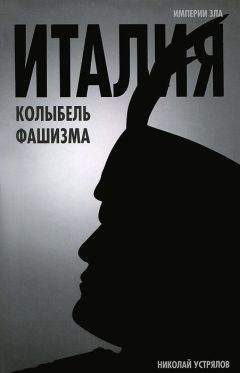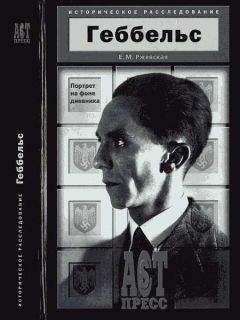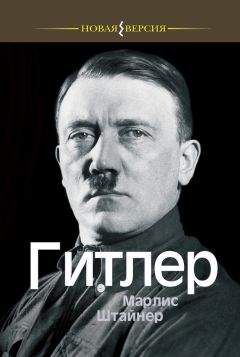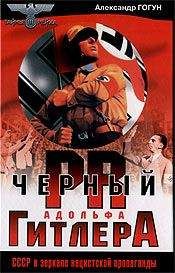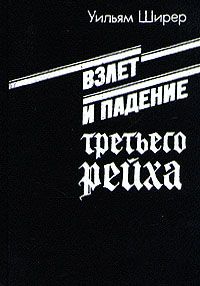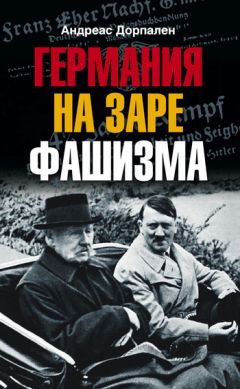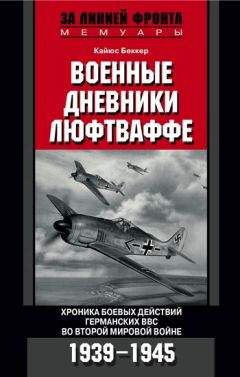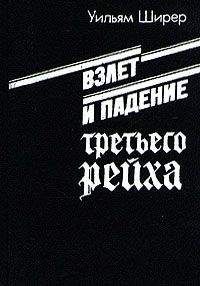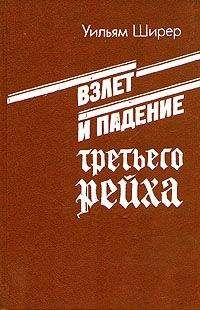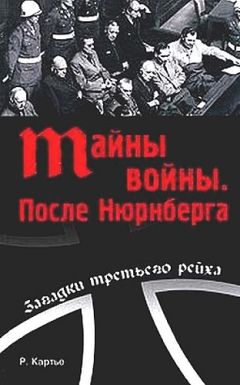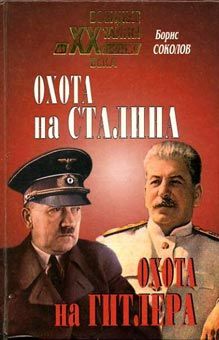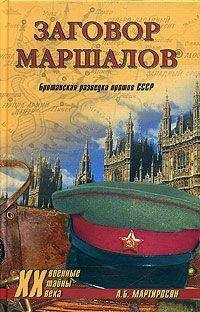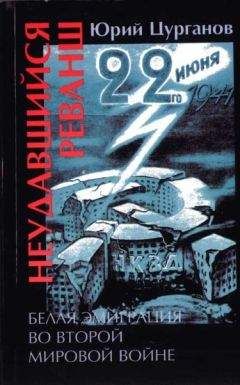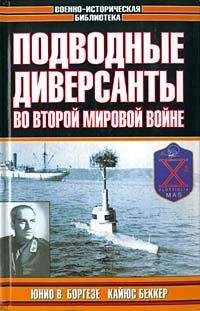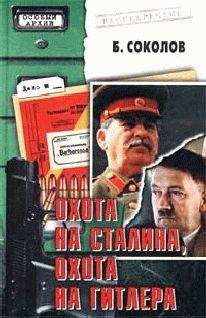Мануэль Саркисянц - Английские корни немецкого фашизма

Скачивание начинается... Если скачивание не началось автоматически, пожалуйста нажмите на эту ссылку.
Жалоба
Напишите нам, и мы в срочном порядке примем меры.
Описание книги "Английские корни немецкого фашизма"
Описание и краткое содержание "Английские корни немецкого фашизма" читать бесплатно онлайн.
В данной книге излагается совершенно новый взгляд на происхождение немецкого фашизма. М. Саркисянц доказывает, что многие истоки идей Гитлера кроются в имперской политике и идеологии Англии. Автор последовательно показывает, как колониальная политика Англии, ее имперские амбиции, отношение к расовому вопросу, принципы воспитания и образования повлияли на формирование идей Гитлера. Подробно рассказано об идеализации гитлеровского Рейха в консервативном истеблишменте Великобритании, об участии англичан во Второй мировой войне на стороне Германии. Автор анализирует также принципиальные различия в теоретических и практических подходах британских и германских расистов, обусловивших столь разную судьбу и оценку соответствующих исторических феноменов.
Примечания
1
Кэтрин Марджори, урожд. Рэмзи (1874—1960), жена Джона Джорджа Стюарт-Мэррея, восьмого герцога Атолского. В 1923—1938 гг. член парламента от консервативной партии (в 1924—1929 — парламентский секретарь в министерстве просвещения). В 1938 г. покинула парламент и партию из-за несогласия с ее курсом. В 1944 г. председательствовала в «Английской лиге за свободу Европы». Автор нескольких книг по международным вопросам, в том числе «Прожектор в Испании» (1938).
2
Здесь и далее, кроме особо отмеченных случаев, курсив автора (прим. автора).
3
Edwin Jones, The English Nation, The great myth (Glowcestershire, 1998), p. 216; Benjamin
Jowett as quoted by R. Symonds, Oxford and Empire (Oxford, 1991), p. 28; Lord Alfred Milner, The Nations and the Empire. A Collection of Speeches and Addresses (London, 1913), p. xxxv; Carl Amery, Hitler als Voriaufer. Auschwitz — der Beginn des 21. Jahrhunderts? (Munchen, 1998), S. 14; Arnold J. Toynbee, A Study of History, Vol. i (Oxford, 1935), p. 211; Charles Dilke, Greater Britain (London, 1869), pp. 223, 564; Richard L. Rubenstein, Modernization and the Politics of Extermination; Michael Berenbaum (Editor), A Mosaic of victims. Non-Jews persecuted and murdered by the Nazis (London, 1990), pp. 3 f, 6, 8f.
4
Thurlow, Fascism in Britain (London, 1982), p. 13.
5
Paul Hayes, "The contribution of British intellectuals to Fascism, in: Lunn & Thurlow, British Fascism, p. 168—186.
6
Paul Hayes, "The contribution of British intellectuals to Fascism, in: Lunn & Thurlow, British Fascism, p. 178.
7
Missed foornotetext
8
Benjamin Kidd, Social Evolution (London, Ausgabe von 1898), p. 280.
9
Karl Pearson, National Life from the standpoint of Science (London, 1901), S. 19, zitiert nach Paul Hayes, "Contributions of British intellectuals to Fascism": Lunn & Thurlaw, British Fascism. S. 176f.
10
Walter Houghton, The Victorian frame of mind (New Haven, 1970), S. 328.
11
Anglo-German Review. II. № 2. 1938. January. P. 51.
12
Carlyle, Critical and Miscellaneous Essays, \Ы. V (Boston, 1838), p. 17; Thomas Carlyle,
Latter-Day Pamphlets, p. 55. Edition of Michael Goldberg and Jules Seigel (Canadian Federation for the Humanities, 1983), quoted by Chris R. Vanden Bossche, Carlyle and the Search for Authority (Columbus, Ohio, USA, 1991), p. 138, 168; Adolf Hitler, Mein Kampf (Munchen, 1941), p. 479.
13
Rudyard Kipling, Something of Myself (London, 1951), pp. 154, 157, 103, 119f, 132; R. Thurston Hopkins, Rudyard Kipling's World (London, 1925), pp. 64f; Harold Orel (Editor), Critical Essays on Rudyard Kipling (Boston, 1989), p. 221; Preben Karlsholm, "Kipling and Masculinity", in: Raphael Samuel (Editor), Patriotism. Making and unmaking of British national identity, Vol. III (London, 1989), p. 215; Hans Grimm, "Geistige Begegnung mit Rudyard Kipling", in: Das Innere Reich, October/March 1935/ 36, S. 1458, 1465.
14
"Наполас" (Napolas; Nationalpolitische Erziehungsanstalten (нем.)) — созданные в апреле 1933 г. учебные заведения для подготовки нацистской элиты. В "наполас" обучались подростки в возрасте 10—18 лет; формально "наполас" подчинялись министерству образования, однако старший преподавательский состав представляли члены СА и СС. По сути "наполас" являлись кадровым резервом нацистской партии и вооруженных сил (здесь и далее, кроме особо отмененных случаев, примечания переводчика).
15
E. K. Milliken, "The new Public Schools in Germany": The Times (London) of 28. September 1935, cited by Harald Scholtz, Nationalsozialistische Ausleseschulen. Internatsschulen als Herrschaflsmittel des Fuhrerstaates (Gottingen, 1973), S. 143.
16
J. W. Tate, "The Public Schools of Germany": Internationale Zeitschrift fur Erziehung, VI, (1937), S. 172.
17
"Белый пака-сахиб" — особо замечательный и выдающийся белый сахиб.
18
Tate, p. 172.
19
G. A. Rowan-Robinson, "Training of the Nazi leaders of the Future" (Ansprache im Chattham House, London, am 27. Januar 1938, under Chairmanship of Major В. T. Reynold, M. C, in: International Affairs (Marz 1938), pp. 237, 235, 241.
20
Гейсмейер Август (1897—?) — министериальдиректор, депутат рейхстага и офицер СС.
21
Harald Scholtz, Nationalsozialistische Ausleseschulen. Internatsschulen als Herrschaftsmittel des Fuhrerstaates (Gottingen, 1973), S. 99.
22
Volker Raddatz, Englandkunde im Wandel deutscher Erziehungsziele (о. O., 1977), p. 146.
23
Theodor Wilhelm, "Scholars or Soldiers? Aims and results of "Nazi" education": Internationale Zeitschrift fur Erziehung, VIII (vom 5. November 1939), S. 95.
24
Лей Роберт (1890—1945), рейхсляйтер, зав. орг. отделом НСДАП, руководитель "Германского трудового фронта".
25
Harald Scholtz, Nationalsozialistische Ausleseschulen, S. 190; Price Ward, Extra-special Correspondent (London, 1957), S. 201.
26
Volker Raddatz, Englandkunde im W&ndel deutscher Erziehungsziele (n. p., 1977), p. 146.
27
Ross McKibbin, Class and Culture. England 1918-1951 (London, 1998), pp. 238, 245; Т. C. Worsley, Barbarians and Philistines. Democracy and the Public Schools (London, 1940), pp. 121,200.
28
H. John Field, Toward a Programme of Imperial Life. The British Empire at the turn of the Century (Oxford, 1982), pp. 22, 35, 39; J. A. Mangan, in: John Mackenzie, Imperialism and Popular Culture (Manchester, 1986), p. 116.
29
Gerwin StrobI, The Germanic Isle. Nazi perceptions of Britain (Cambridge, 2000), pp. 80, 69, 76, 82.
30
Rudolf Diels, Luzifer ante portas (Stuttgart, 1950), S. 84, zitiert in Josef Henke, England in Hitlers politischem Kalkul, 1935-1939 (Boppard, 1973), S. 22; Hitler, Monologe im Fuhrerhauptquartier (Rindlach, 1988), S. 393:6 September, 1942; Hans F. K. Gunther, Ritter, Tod und Teufel. Der heldische Gedanke (Munchen, edition of 1920), S. 96: "Ruchlose Willenstat"; Raddatz, S. 152; StrobI, pp. 42, 64.
31
StrobI, pp. 77, 169, 223, 69, 90, 91.
32
Johannes H. Voigt, "Hitler and Indien": Vierteljahreshefte fur Zeitgeschichte, IX (1971), S. 33, 49; SS-General Walter Schellenberg, Invasion 1940. The Nazi invasion Plan for Britain (London, 2000), p. 27; Die Welt vom 15. August, 2000: "Operation Seelowe".
33
Raddatz, S. 143, 152, 157 (Anml91, 192), zitiert O. Harlander, "Franzosisch und Englisch im Dienste der rassenpolitischen Erziehung": Neue Sprachen, No. 44 (1936), S. 50.
34
Крайним проявлением этого убеждения стал религиозный англо-израильский культ, отождествлявший англосаксонскую расу с потерянными коленами Израиля (прим. Автора).
Raphael Samuel (Editor), Patriotism. The Making and Unmaking of British National Identity, Vol. I (London, 1989), p. 58; William Henry Poole, History, the True Key to Prophecy in which the Anglo-Saxon Race is shown to be the lost tribes of Israel (Brooklyn, 1880, cited in John Higham, Strangers in the Land. Patterns of American Nativism 1860-1925 (Westfort, Conn.; USA, 1981), p. 367); William Haller, Foxe's Book of Martyrs and the Elect Nation (London, 1967), p. 87, (начиная с елизаветинских времен, эта книга считалась самой влиятельной в Англии после Библии — утверждал Эдвин Джонс: Edwin Johnes, The English Nation. The Great Myth (1998), pp. 56, 57).
35
William Blake, Jerusalem. The emanation of the Giant Albion, Chapter II, XXIV, 5: Prophetic Books of William Blake, edited by E. P. D. Maclagan and A. G. B. Russel (London, 1904), p. 31; Friedrich Brie, Imperialistische Stromungen in der englischen Literarur (Halle, 1928).
36
Alain and Cairns, Prelude to Imperialism. British Reactions to Central African Society, 1840—1890 (London, 1965), p. 238; MacDonald, Language of Empire, p. 153 f. Rutherford, Forever England. Reflections on Race, Masculinity and Empire (London, 1997), p. 15.
37
Lord Oliver, The Myth of Governor Eyre (London, 1933), p. 115; Missionary Hymns... of the London Missionary Society (London, 1830), p. 43 as quoted in Raphael Samuel (Editor), Patriotism. The making and unmaking of British National Identity, Vol. I (London, 1969), p. 194: John Wolffe, "Evangelicalism... in mid-ninteeth century England".
38
Mackenzie, Imperialism in Popular culture, p. 33; David Brion Davis, The Problem of Slavery in the Age of Revolution (Ithaca, N. Y, USA, 1977), p. 65; Peter Marsh, The Conscience of the Victorian State (London, 1979), p. 128; Alain and Cairns, Prelude to Imperialism (London, 1965), p. 238.
39
Alain and Cairns, pp. 246, 192.
40
Daunton and Halpern (Editors), The Empire and Others. British Encounters with Indigenous Peoples 1600-1850 (London, 1999), p. 365; Hill Schwarz (Editor), The Expansion of England. Race, Ethnicity and cultural History (London, 1996), p. 162; Thomas R. Trautmann, Aryans and British India (Los Angeles, 1997), reviewed in American Historical Review, Vol. CIV, No. 2 (April, 1999), p. 639.
41
Chris R. Vanden Bossche, Carlyle and the Search for Authority (Columbus, Ohio, USA, 1991), p. 137, quoting Carlyle, Collected Letters (Durham, 1970), 13: 192 and Carlyle, Reminiscences of my Irish Journey in 1849, p. 176; Robert Knox, The Races of Men (Philadelphia, 1850), 26, 216-220; 41. 89 f, 216, 253; Raphael Samuel (Editor), Patriotism, p. 196 (John Wolffe); Kathryn Tidreck, Empire and the English Character (London, 1992), p. 131.
42
Ibid., o. 257; J. M. Mackenzie, Imperialism and Popular Culture (Manchester, 1986), p. 5; Johannes H. Voigt, "Hitlerand Indien"; Vierteljahreshefte fur Zeitgeschichte, IX (1971), S. 33,49; Sidney Ball, Memories and Impressions of "an ideal Don". Arranged by Oona Howard Ball (Oxford, 1923), p. 211.
43
George Orwell, Collected Essays, Journalism and Letters, II (Harmondsworth, 1970), p. 95.
44
Richard Symonds, Oxford and Empire, pp. 55; cf. Vincent Harlow, The Historian and British Colonial History (Oxford, 1951), pp. 8, 9; Dickson A. Mungazi, The Last British Liberals in Africa: Michael Blundell and Garfield Todd (Westport, Conn., USA, 1999), cited in American Historical Review, Vol. CV, No. 5 (December, 2000), pp. 1845 f.
45
James A. Froude, Oceana. England and her Colonies (Leipzig, 1887), p. 44; Mackenzie, Imperialism and Popular Culture (Manchester, 1986), p. 41; Penny Summerfield, "Patriotism and Empire. Music Hall Entertainment".
46
Otto Gessler, in: Al Carthill, Die Erbschaft des Liberalismus (Berlin, 1926), S. IX; Esme Wingfield-Stratford, The Squire and his Relations (London, 1956), p. 92.
47
Ross McKibbin, Ideologies of Class. Social relations in Britain 1880—1950 (Oxford, 1991), p. 299, 288, 24, 275, 271 IT, citing R. Roberts, The classical Slum (London, 1974); C. F. G. Masterman, England after the War (London, 1922), pp. 54 f.; A. Finkel and C. Leibovitz, The Chamberlain—Hitler Collusion (Halifax, Canada, 1997), p. 38.
48
Patricia Meehan, The Unnecessary Win Whitehall and the German Resistance (1992), p. 24; John H. Clarke, The Call of the Sword (London, The Financial News, 1917), pp. 8, 15, 30 f, 33, 34, 52 f; Panikos Panayi, The Enemy in our Midst. Germans in Britain during the First World War (Oxford, 1991), pp. 172-177, 180 f, quoting J. H. Clarke, England under the Heel of the Jew (London, 1918), pp. 58—61, 65; Kirton Varley, the Unseen Hand (London, 1917), pp. 25 f, 44 f, 49 f, 52 ff, 72, 75, 88 f; Arnolf White, The Hidden Hand (London, Septemberand October, 1917); The Vigilante of 23. February, 2., 9. and 16. March, 1918, 26. April, 1918.
49
D. S. Lewis, Illusions of Grandeur. Mosley, Fascism and British Society 1931—1981 (Oxford, 1987), pp. 261 f; Robert Skidelsky, Oswald Mosley (London, 1975), p. 333; Richard Thurlow, Fascism in Britain (Oxford, 1987), p. 16; Brigitte Hamann, Hitler's Vienna (New York, 1999), p. 404 f.
50
Margaret George, The Warped Vision of British Foreign Policy 1933-1939 (Pittsburgh, 1965), p. VIII: Preface by R. Colodny; Ross McKibbin, Class and Culture. England 1918-1951 (London, 1998), p. 530.
51
N. Bethell, The War Hitler Won. September, 1939 (London, n. d.), p. 180; Ross McKibbin, ibid., p. V; E. P. Thompson, The making of the English working Class (1968), pp. 26 f; A. Finkel and C. Leibovitz, The Chamberlain—Hitler Collusion, p. 37, 38, quoting Margaret George, The Hollow Men (London, 1967), p. 66; Ellis Wasson, Born to rule. British political Elites (New York, 2000) reviewed in American Historical Review, Vol. CVII, No. 3 (June, 2002), p. 935; Philip M. Taylor, British propaganda in the twentieth century. Selling Democracy (Edinburgh, 1999), p. 91.
Подписывайтесь на наши страницы в социальных сетях.
Будьте в курсе последних книжных новинок, комментируйте, обсуждайте. Мы ждём Вас!
Похожие книги на "Английские корни немецкого фашизма"
Книги похожие на "Английские корни немецкого фашизма" читать онлайн или скачать бесплатно полные версии.
Мы рекомендуем Вам зарегистрироваться либо войти на сайт под своим именем.
Отзывы о "Мануэль Саркисянц - Английские корни немецкого фашизма"
Отзывы читателей о книге "Английские корни немецкого фашизма", комментарии и мнения людей о произведении.






